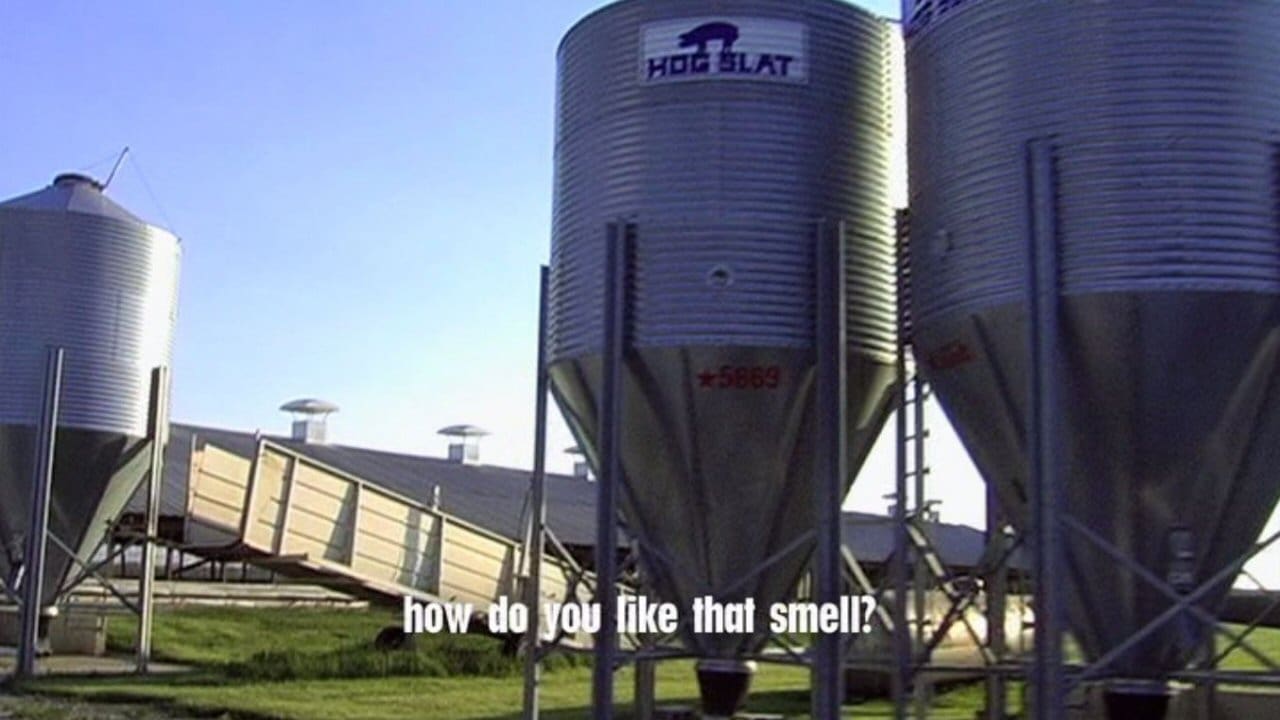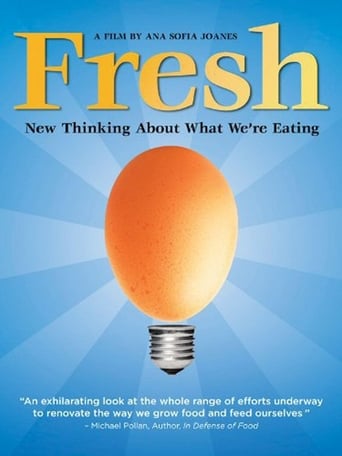AwareGuide
The new food justice documentary, Fresh, couldn't have a better protagonist than Virginia farmer Joel Salatin. With his handsome, sunburned face, ready laugh and muddy jeans, he looks like he stepped right out of a Norman Rockwell painting. And he sounds like a poet. "Oh, it doesn't get much better than this," he smiles, surveying his rolling green acres. "When the early morning sun comes up, the dew looks just like diamonds on the grass…birds are singing…very soothing morning, I think." Salatin also practices the organic farming the film promotes—on a mid-sized farm he marries old-fashioned agricultural wisdom with modern technology and makes a profit (he yields $3,000 per acre for his "clean meat" compared to his factory beef-farming neighbor's $250 an acre). This to right the wrongs of modern American farming: three firms process 84 percent of all beef; 70 percent of the country's grain goes to cattle feed; since 1950, the nutritional level of produce has fallen by 40 percent; salmonella and other "feed lot" bacteria regularly kill consumers; and the list goes on.But Salatin isn't the only yummy thing about Fresh. Producer and director Ana Sofia Joanes' storytelling is quiet—she sits back and lets her convincing, well-spoken stars shine—and she fairly includes non-organic farmers like an Arkansas couple financially trapped in an industrial farming life. Joanes lets us feel sympathy for these conventional farmers, too; no lurid slaughter scenes or evil violins in the score here to terrify your kids.Best yet, Joanes gives can-do characters like Salatin plenty of film time to give their answers to the food industry crisis, and thereby sends the message, heck yeah, we can fix this; quickly and easily.Professor John Ikerd, professor emeritus of Agricultural Economics at the University of Missouri, Columbia, tells us this problem isn't that old. Our ancestors' small family farms morphed into the "animal cities" we have today because "the (mid-twentieth century's) paradigm of industrialization—specialization, standardization, economies of scale—has worked so well we've applied it to everything," he says. "But it doesn't work on everything, and it's time to shift to a different paradigm, to a different world view." Michael Pollan, the award-winning journalist and sought-after food-justice champion, explains why "monocultures," acres and acres of the same species of corn or cattle most American farmers raise, are dangerous things. "When you grow too much of the same thing, you end up with too many pests of that thing." Consequently farmers must use more pesticides and fertilizers in their fields and antibiotics on their animals, and societies are vulnerable to food shortages such as Ireland's potato famine, wherein a million people starved to death and another million fled the country. But farmers can simply grow a multitude of crops and let nature's food chain keep them healthy, Pollan says.Former professional basketball player and corporate manager Will Allen does just that. In Milwaukee's Growing Power Food Community Center he teaches urban people with palates long-tuned to McDonald's how to grow a multitude of fresh, organic produce in small spaces. "Go vertical," he says, pointing to a hanging basket of greens, one of the 150 species of vegetables grown in the backyard-sized greenhouse.We also meet David Ball, who stocks local and organic meat, eggs, cheese, honey and produce in his sleek Kansas City supermarkets. Andrew Kimbrell, executive director of the Center for Food Safety, tries to convert consumers and factory farmers alike with scientific data that shows, unequivocally, he insists, that mid-size organic farming is the best farming model for everybody. "Yes, it can feed the whole planet"; farm workers and animals alike are treated with decency; people, animals and the environment will be healthier; and it's easy. Our first move in supporting organic farming can be as simple as choosing an organic tomato at the supermarket."Every decision we make at the supermarket is creating a different future; for the land, the farmers, the diversity of our crops, the health of our communities," Kimbrell says. "We're voting with our dollar." For Joel Salatin, going organic is just the right thing to do. "Part of our responsibility as stewards of the Earth". (As originally posted in the AwareGuide for transformational media)
kbaker412
I completely disagree with the previous review comparing this film to Food Inc. While I think Food Inc is a great movie and a must-see, what Fresh offers that Food Inc does not is a "fresh" perspective on the future of food. Food Inc portrays many of the problems and flaws in the food industry, while Fresh offers optimism and a peek at what many people around the country are doing to change the way we deal with food in America. This movie is a very valuable, must-see movie and makes a great follow up to Food Inc.In addition, the makers of the movie are passionate about positive change and very active in seeing that change happens. This is a film that deserves as much support as possible.
acornfalls
"Fresh" is the perfect adjective to describe this movie's perspective on our destructive industrialized food systems, offering a variety of farmers' viewpoints, from conventional to revolutionary. The documentary underscores the obstacles today's farmers face in freeing themselves from the factory farm model while showcasing the success of some very progressive and charismatic individuals. I never saw Food Inc. so I can't corroborate previous reviewer's opinion, but I can say this film both educated and inspired me, and I believe there is room for even more media on this important topic. Fresh is a wake up call for those who have never questioned the origins of their processed diet, and a beacon for those who have.

